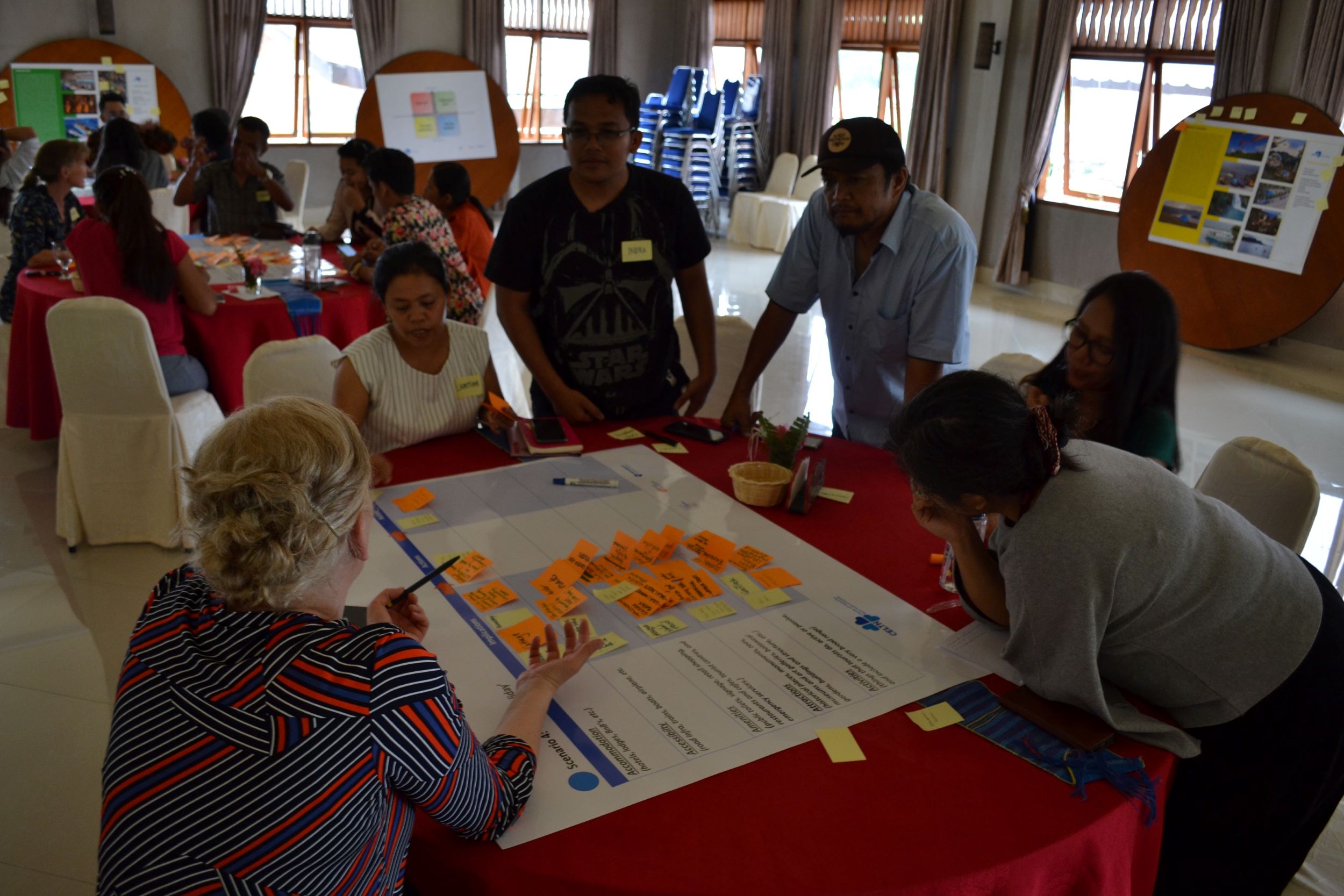Future tourism development: Lake Toba 2030
On the 12 of March 2020, CELTH program managers Jasper Heslinga (ETFI/ NHL Stenden) and Guido Aerts (BUas) together with Yvonne Klerks (BUas) organised a workshop for local stakeholders in Lake Toba, Sumatra, Indonesia. The purpose of this workshop was to develop future scenarios for Lake Toba in 2030 and collaboratively make an inventory of the local needs regarding training, courses, skills and so on concerning sustainable tourism destination development.
Scenario planning as a tool
The workshop was attended by a diverse group of 20 local stakeholders (e.g. tourism entrepreneurs, civilians, government officials, interest groups, tourism board and educational institutes). During the workshop, scenario planning was used as a tool for envisioning different futures for Lake Toba 2030. The four different future scenarios below were presented as the starting point of the discussion and should help the local participants think outside of the box. The scenarios were presented on posters making use of storytelling and mood boards:
- Bali 2.0
- Indonesia First
- Oriental Costa Rica
- Family Holiday
Together with the participants the implications and actions were discussed and prioritized for each scenario. As a result of the workshop a first overview of the local needs regarding knowledge and skills development were identified and how these link with research & educational programs in the Netherlands.
“We do not want to be a 2nd Bali”
An outcome of the workshop was that the majority of the participants see a Bali 2.0 scenario an undesirable. Lake Toba is a unique area with a pristine nature element, a geological history, beautiful landscapes intertwined with the local Batak culture. The CELTH experts stated that having a clear vision on the development of tourism is crucial and making use of spatial zoning can be helpful to become in control. Another important observation is that when tourism impacts the landscape of community that it is important for Toba to keep the income this generates in the region itself. The local needs for education, training, skills are substantial but include among others environmental awareness, entrepreneurial, English language, basic hospitality skills and the development of role models and local leaders.
Living Lab Lake Toba (Dutch)
Focus on Core Web Vitals and user-centric performance metrics for better search rankings and user experience.
Download


